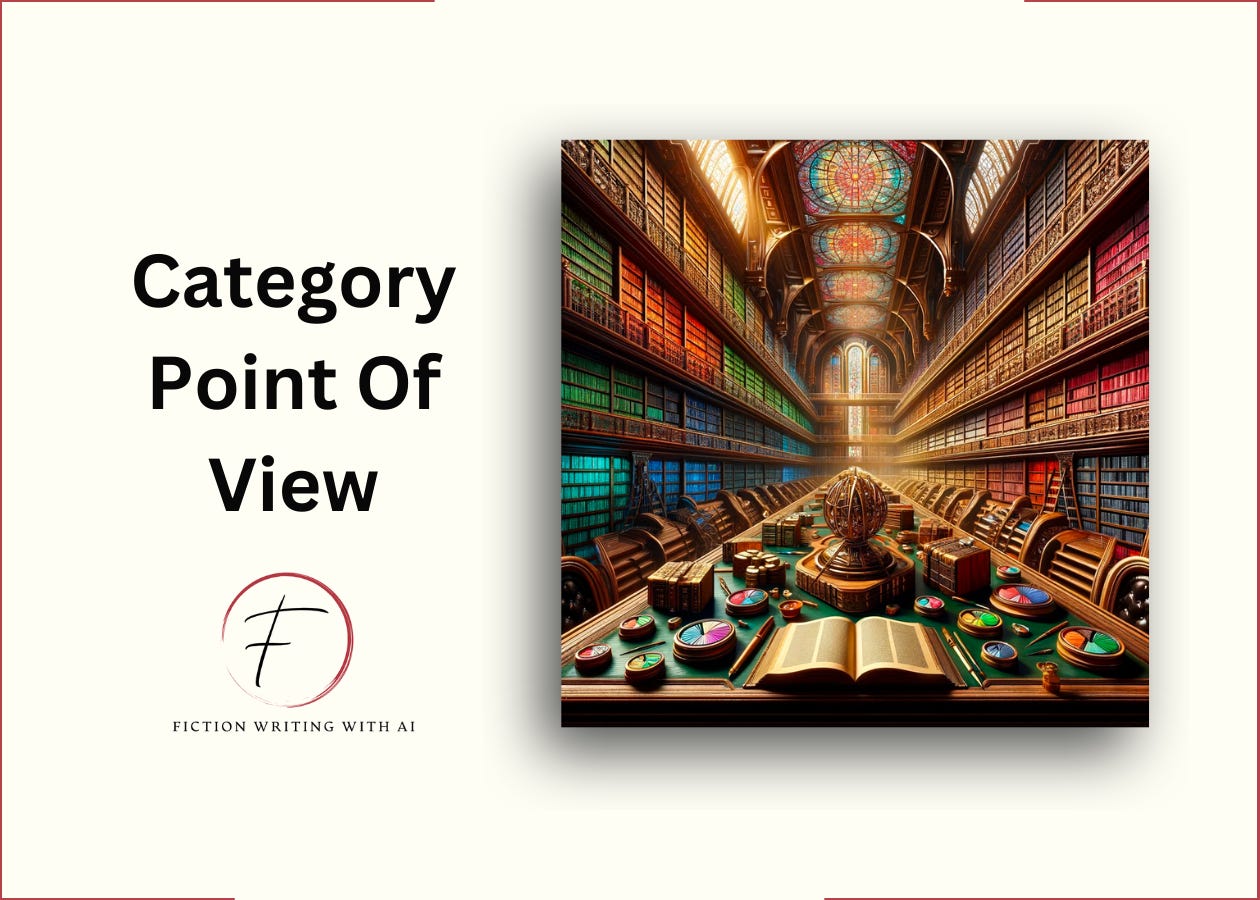POV Differentiator: 2 Fiction Category Creation Mistakes That Lead To Zero Reader Attention
And How To Fix Them With AI
Hey there!
It’s not enough to simply “name” your new category.
The naming is just what gets the reader to STOP and consider what makes you new and different.
Once you get their attention, however, you then have to quickly articulate why this new subcategory matters. For example, “Gonzo Journalism” is described as, “A style of journalism that is written without claims of objectivity, often including the reporter as part of the story using a first-person narrative.” The purpose of articulating your POV and definition of this new category you’re creating is to, help the reader decide whether your work is 100% for them or 100% not for them.
This is another huge mistake writers make.
And it manifests in two different ways (and both are rampant in the publishing industry).
Mistake #1: Trying to be everything for everyone.
It’s very common for writers to say, “I’m writing a universal love story.”
OK, so slow down for a second and listen to these words from a category perspective. “Universal” is the modification, and “love story” is the megacategory. So, what’s new and different here? Well, it’s a “love story” for “everyone.” But do you know what it’s about? Do any images come to mind? Do you get a sense as to whether this would be for you, or not for you?
No, you don’t. None of these questions get answered—and as a result, leave you feeling lukewarm. And three seconds later, you’ve forgotten it even existed.
That’s because when you try to write something for everyone, you end up writing something for no one.
The entire purpose of creating a new category for yourself isn’t to just differentiate yourself for differentiation’s sake, but to draw a hard line in the sand: “My writing is for these types of readers, and is absolutely under no circumstances for those types of readers.” In fact, it’s arguably more important for you to know who your story ISN’T for—because if you know who would be entirely uninterested (or even hate!) your story, you will have exponentially more clarity as to who would be over-the-moon obsessed with your story.
Mistake #2: Being “clever” instead of clear.
This is practically an epidemic in the world of fiction.
Writers don’t want to Name & Claim their own category because “they want it to be for every reader, all over the world, forever.” They then compound the problem by making it nearly impossible for readers to understand what makes them DIFFERENT by using clever language—either in the title, the subtitle, the description of the category & book (the POV), or all of the above.
For example:
“Kiss: An incredible love story of passion, deceit, and jealousy.”
“Midnight In Paradise: An unforgettable love story full of wild twists and turns.”
“Together Forever: When who you are today doesn’t make it to tomorrow.”
Do these sound cliché? Even worse, are they confusing?
Many writers think being “creative” is about using language that sounds flowery and mysterious. They think using phrases like, “When who you are today doesn’t make it tomorrow,” they are being “shadowy”—and that mysterious intrigue is what will make a reader pause, yank the book off the shelf, and shout for all to hear, “HOLY GUACAMOLE, NOW THIS SOUNDS LIKE AN INCREDIBLE STORY!”
In reality, this vague language usually has the inverse effect.
The reader’s eye catches it for a millisecond and moves right along. They give it zero attention because they don’t actually know what it’s saying, or why it’s new and different. And again, it’s not because the writing inside isn’t any good, but because a) there’s no new category, and b) the language describing the category and the subsequent story is trying to be clever—and as a result, it isn’t being clear.
Again, the reader is constantly asking themselves:
“What is it?”
Your POV should be summarized into a single sentence, and immediately follow your new and different category.
For example:
Military Romance: Love stories between men at war and the women they leave behind.
Railroad Romance: The different ways people fall in love on trains.
Mad Men Romance: Love, the way it was during the Mad Men era of advertising in New York City.
The goal of the one-sentence POV description is not to “sound clever.”
The goal is, quite literally, to tell readers exactly what this is.
Specificity is the key.
The more specific you can be, the more likely a reader is to understand what they’re looking at, the more likely they are to make a decision as to whether they ARE interested in reading about love stories from the Mad Men era of advertising in New York City, or ARE NOT interested in reading about love stories from the Mad Men era of advertising in New York City. (Which means, as the writer, you will attract more of the readers you want, and repel more of the readers you don’t want—both of which are terrific outcomes.)
More times than not, your POV ends up being a reflection of your own personal experiences as a human being. John Grisham started writing “legal thrillers” because he had spent much of his professional life working as a lawyer. As a result, his new category and POV came out of his personal experiences. He felt telling “legal thriller” stories was important to the world.
The idea here isn’t to come up with something you think will “sell,” but a category and POV you feel committed to spending your life in service of.
Create Your Category POV With AI
A word of caution:
Keep reading with a 7-day free trial
Subscribe to Fiction Writing With AI to keep reading this post and get 7 days of free access to the full post archives.




